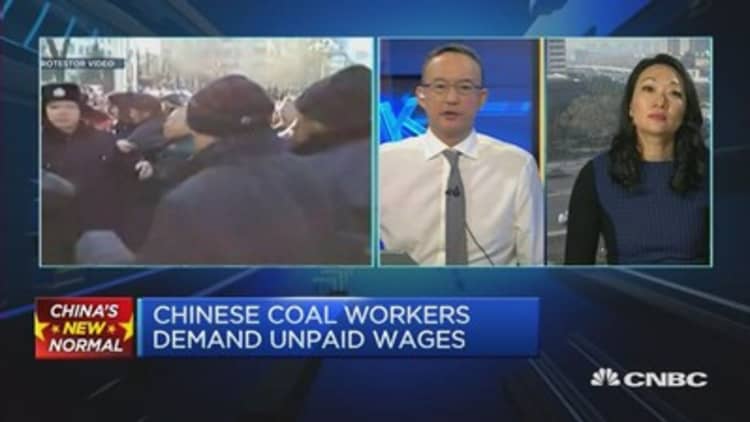Few Wall Street banks are still willing to get their hands dirty in the coal business.
Under pressure from government officials and environmental advocacy groups, a growing number of top financial services firms are scaling back their financing of coal mining operations.
This month, JPMorgan Chase and PNC Financial announced new policies restricting their activity supporting mountaintop removal, a particularly destructive coal mining process. It comes after banks such as Morgan Stanley, Wells Fargo, Citigroup, Goldman Sachs and Bank of America announced commitments to back away from financing the coal industry, although the language in each firm's environmental statements tends to vary.
"The major banks are first movers on this," said Amanda Starbuck, climate and energy program director with the Rainforest Action Network, an environmental group that has pushed for banks to exit financing coal development projects. "The bank that has the furthest to go is Goldman Sachs; the bank has not cut financing for coal mining on a sectorwide basis."
Late last year, Goldman Sachs issued a statement and said it would be "selective" in coal project financing. Yet Goldman's work financing coal sector deals has been less than most large banks in the U.S. and in Europe, on a dollar basis. Starbuck was also critical of policies announced by Deutsche Bank, whose policies on coal project financing she said lacks transparency.
The White House this year issued a moratorium of new leases for coal mined on federal lands, a blow to coal producers. California pensions, under Gov. Jerry Brown's 2015 law, will divest from investments in coal companies by mid-2017. Somewhere along the line, financing the coal sector became nearly tantamount to backing firearms makers.
Banks' withdrawal from coal is having an immediate impact. After sector pressures forced Alpha Natural Resources into bankruptcy last August, the lack of financing from banks to let the company exit Chapter 11 led the company to sell more assets as it continues its restructuring.
Wednesday, coal producer Peabody Energy skipped an interest payment due March 15, warning investors it faces potential bankruptcy. Trade publication Debtwire reported earlier in March that the company selected bankruptcy consultant Kurtzman Carson as a claims agent for a potential Chapter 11 process. Peabody declined to comment.
Last month, analysts at Barclays slashed estimates for Peabody stock and noted that the company faces challenges to its financial position, not just from banks' pulling away from coal financing but from commodity price pressure, as well.
"We also believe that in current markets the likelihood of a major asset sale at a multiple sufficient to allow deleveraging also looks more and more remote," analysts wrote in their report.

Since 2011, annual coal production totals in the U.S. have mostly declined. Over that time, the price of coal as a commodity has also fallen, imperiling numerous companies with operations focused on the sector. One sector banker, who asked to not be quoted, said that over recent years deals in the coal space have diminished and the sector has been less profitable to most banks.
Read MorePeabody flags bankruptcy risk
But in spite of how little coal means to banks' revenue, it still has a tremendous impact on American energy consumption. For decades, coal served as the primary resource powering electric generation; only this year, according to estimates Wednesday from the U.S. Energy Information Administration, is natural gas expected to surpass coal as the leading fuel for electricity.
It remains to be seen how far Wall Street's desire to turn over a new leaf in regard to coal mining projects extends: Smaller banks including Comerica have environmental policy statements but do not include specific language in regard to coal project financing. Jefferies and CapitalOne did not provide an explanation of their environmental policy statements by publication time.






